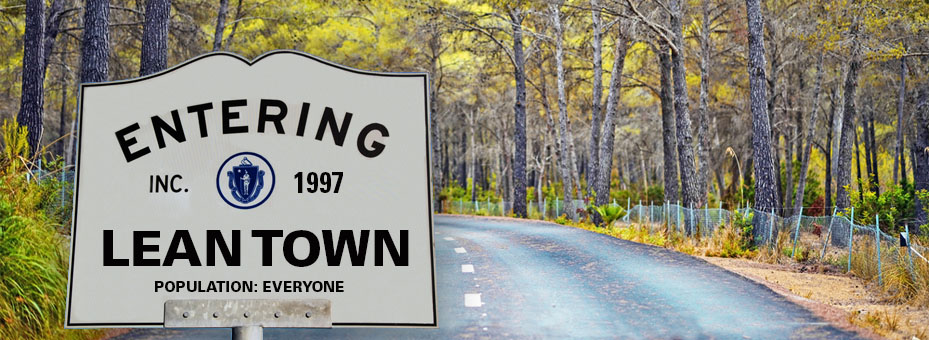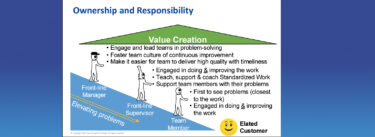I’ve been reading the new book by James and Deborah Fallows, Our Towns: A 100,000-Mile Journey Into the Heart of America. James Fallows is an award-winning journalist, author of 11 previous books on subjects ranging from the rise of China to the future of air transport, a longtime correspondent for the Atlantic magazine – and a pilot. The book chronicles the flying odyssey he and his wife and collaborator, also a writer, undertook over four years, crisscrossing the smaller cities and towns of the country.
It’s a deeply hopeful story of renewal, reconstruction, and citizen engagement in places that have been hard hit by deindustrialization, offshoring and all the changes that have adversely affected many regions of the United States over the last decades. They didn’t spend any time in “the lucky few” metropolitan regions that are prospering as a result of globalization and the rise of the knowledge economy: here at LEI, in Kendall Square, Cambridge, MA, we are at the epicenter of just such a bubble.
In Sioux Falls, South Dakota, civic leaders replaced an Interstate highway bridge over the river falls that give the city its name with a park, trails and bike paths, to improve quality of life – and to make the city attractive to the younger workforce that powers the knowledge economy.
In Holland, Michigan, home of the Herman Miller company, business and civic leaders with long roots in the community refused to let local manufacturing die, and partnered with the library and schools to train the workforce needed to sustain a vibrant local advanced manufacturing base.
Greenville, South Carolina and Columbus, Mississippi have invested in innovative STEM (or STEAM…the A is for Arts) – based magnet boarding schools, and also found an important economic driver in the local public library.
These aren’t stories of sweeping public policy changes. Eastport, Maine isn’t renovating and reusing its waterfront because America is now great again, or because Congress passed a sweeping new program. These are stories of local people deciding that their communities are headed in the wrong direction, and acting with their fellow citizens to make things better. They refused to accept the status quo, and fumbled their way into doing something about it: unconscious PDCA in action. The stories will sound familiar to anyone who has tried to use lean to make things better at work.
When I worked in state government years ago, an enlightened Commissioner punctured the cynicism about “politics” by observing, “politics is the process by which a society enacts its values”. When I reflect on some of the outcomes produced by our current political process, it pains me to realize just how right he was. But what the Commissioner was calling “politics” (small “p”, please), we might call the social or people element of the socio-technical system for making things better which is lean.
One of the most common questions that we get here at LEI is,”how can I get the attention and commitment of senior leaders for the improvement work we’re doing?” It’s a very real and very important question – and one that also speaks to the need to bring authority to bear on the improvement process. Not power – there is plenty of that already asserted in the workplace and in the political process. But the authorization of the stakeholders, whether in the community or workplace, for leaders to take action. Without authority, we’re all just pushing on a rope.
The folks in Greenville, South Carolina had to confront the same problem: how to get local government, business leaders, the “establishment” to take the problem seriously and become part of the solution. The textile economy in the region had collapsed. The workforce was poorly prepared for the jobs of the future. The region seemed “off the beaten track” to educated professionals. Economic and social survival required collaborative action from leaders from all parts of the community. Of course, this is the essence of the democratic political process: petitioning government for the redress of grievances, organizing one’s fellow citizens to make voices heard and to force action to relieve suffering.
One of the differences is that in the community, of course, there is no issue of management, boards, C-suite, or stockholders. In a democratic society, the “owners” of our communities should be…us. And yet these activists had to find creative ways to bridge the gulf in authority to make things better. In the struggles that the Fallows’ describe, the activists had truly, as Pogo said, “met the enemy and they is us.”
I’ve been reflecting on our work at LEI and in the lean community a lot as I read the Fallows book. We are an interesting bundle of contradictions, we lean thinkers and practitioners: on the one hand, we celebrate and teach and practice the extraordinary tools and approach that we’ve learned, from Toyota and others over many years, to see the work, in granular, sometimes excruciating detail, and only through going to see and learning to see. It’s incredibly powerful; the essence of what we teach. There are many who want to make things better at work who have the intention, the values, the respect for people, but don’t understand the need and lack the tools to actually see the work, and therefore can’t effectively apply the scientific method. We have an obligation to help these folks learn, if they’re interested.
But we’re also drawn to big ideas, far beyond the gemba and model lines: We want to transform the enterprise (we are, after all, the Lean Enterprise Institute), and even more: to create “a Toyota in every industry.”
In a certain sense, we’ve taken our mission as the transformation of capitalism – and beyond that, because we believe that lean leadership is a fundamentally different approach to enterprise management, a transformation of human values and the relationship of leadership to followers, a revolution in organizational authority relations.
That’s a pretty hefty agenda. No wonder we’re disappointed a lot. How many enterprises can you name that have been “transformed” (Toyota doesn’t count, sorry).
We talk a lot inside the lean community about why some of these aspirations have been disappointed, but the usual analysis is some flavor of “you’re doing it wrong”. Like any movement, we have our orthodoxy, our heretics, and our internal contests over who gets to decide which is which.
For me, I’m not sure that the problem is that we’re doing it wrong, or that there is a “right” way that can be generalized much beyond “go see, ask why, and show respect”. I’m absolutely certain that I have no more authority to decide what is the “right” way than anyone else. The disturbing reality is: we’re all trying to figure it out, and whether any improvement effort is on the right track or not only gets solved in the work, and judged by the people doing the work.
Keeping a transformation on track often hits a big barrier in public companies, especially in the US where management can be pretty certain that if they don’t meet the short-term expectations of the stock market, they will be forced out by their boards, or – even worse – the private equity guys will swoop in, dismantle the enterprise, and “enhance shareholder value” by selling the pieces off to the highest bidder. The idea of long-term stability in ownership and management, and the ability to plan and execute on a long-term vision for the benefit of the enterprise and the broader community is practically unheard of in US public companies because it’s close to impossible. One of our faculty, a very experienced Lean sensei, described one of our large, publicly traded industrial companies as “a really lean company – for about 70 days of every quarter.” Then the management panic about making the quarterly numbers drove everybody off the deep end…
It’s not an option to ignore those firms: they are full of good people who want to make work better. We can be realistic about what we are likely to accomplish, however, and not be surprised or despair when the usual happens. That is part of truly grasping the current condition. And we can use our improvement work, as Jim Womack wrote here a couple of months ago, as a diagnostic tool to expose the underlying pathology in the management system. Sometimes that will work, and lead to self-reflection and a change in direction. Other times it won’t, and the work will sputter, die, and revert to status quo ante. The people we’ve developed, however, will endure. They’ve learned, they’ve experienced a different way of seeing, working, and leading, and they will take that with them, into the next job, and into our towns.





